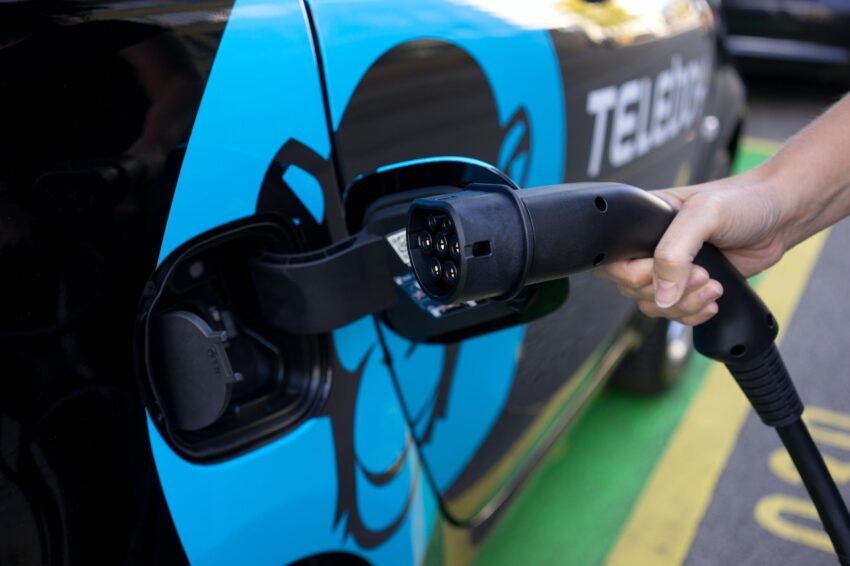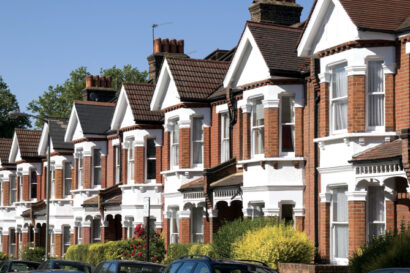AG INSIGHT | 12/03/2019
Beyond technological change: Improving the efficiency of the transport system

Will Tricker, Policy Officer at the Aldersgate Group, argues that to decarbonise the transport sector, improving the overall efficiency of the transport system will be just as important as investing in new technologies and infrastructure.
Throughout the twentieth century government policy has proved powerless to prevent the shift from public to private transport. During this time all other modes of transport lost out to the private car, which has come to shape the modern UK transport system. To this day, despite the government’s intention to promote sustainable transport, new communities are being built without access to alternative forms of transport and UK drivers are more dependent on their car than ever.
This hasn’t come without unintended consequences. Transport is now the largest emitting sector of the UK economy and unlike the sustained progress made in the power sector, transport emissions have broadly flatlined since 2008. According to the Committee on Climate Change (CCC), surface transport emissions need to fall by around 46% between 2017 and 2030 to meet the fifth carbon budget.
Delivering deep cuts in UK surface transport emissions requires not only rapid technological change, but also a significant improvement in the overall efficiency of the movement of goods and people and encouraging a shift to more sustainable modes of transport.
Time for change
Yesterday the Aldersgate Group published a new report, Shifting emissions into reverse gear: priorities for decarbonising transport, which sets out key policies and priorities needed to deliver emission reductions in surface transport. The report argues that improving the overall efficiency of the transport system will be just as important as investing in new technologies and infrastructure and therefore calls on the government to take an integrated system approach to decarbonising transport, rather than treating each mode of transport separately.
This is because a well-planned and coordinated transport system, that reduces demand for travel, whilst encouraging more sustainable use of transport, such as walking, cycling and public transport, can significantly cut emissions. This is generally highly cost-effective has many co-benefits for individuals and governments. For example, between 2017 and 2040, cycling could avert 34,000 long-term health conditions, saving the NHS in the UK £319m.
To improve the overall efficiency of the transport system, government should:
1. Establish an integrated road and rail strategy to ensure that the most environmentally and economically beneficial infrastructure projects are taken forward, this should include shifting more road freight onto a decarbonised UK rail network. This is because the benefits of rail freight is clear, for each tonne of freight transported by rail reduces carbon emissions by 76% and delivers £1.7bn in economic benefits for Britain each year.
2. Devolve long-term funding and key powers to local authorities to cut emissions from short journeys. With 72% of journeys in urban areas being under five miles, local authorities have a key role to play to cut emissions. The government should devolve long-term term revenue and capital funding to local authorities so they can develop their own ambitious integrated transport strategies. Government should also empower local authorities to require new housing developments to be better connected to sustainable forms of transport. As part of this, the decline in funding to supported bus services and cycling and walking networks must be urgently reversed, so that individuals are not trapped into car-based living.
3. Improve local air quality by moving the most polluting journeys outside of urban areas, through supporting the development of Urban Consolidation Centres (UCCs), which are large warehouses outside of urban areas where deliveries from a variety of retailers are consolidated by destination, thereby reducing inner-city freight traffic. Secondly, implementing an ambitious national network of Clean Air Zones (CAZs) with common standards, to restrict the most polluting vehicles from entering designated urban areas, by charging specified classes of vehicles that do not comply with minimum emissions standards.
Decarbonising the UK’s transport system is complex and will require breaking our decades long dependence on private vehicles. Instead all modes of transport, including new forms of mobility solutions, such as car sharing, and greater use of public transport will be needed to decarbonise the UK’s transport system. This is not just essential for meeting the UK’s carbon budgets, it’s crucial to tackling poor air quality, which is currently the most significant environmental risk to public health. It will require all players, businesses, civil society and government, both national and local, working together to outline a new vision of how we want to travel in our towns, cities and countryside, now and in the future.
Will Tricker is Policy Officer at the Aldersgate Group



